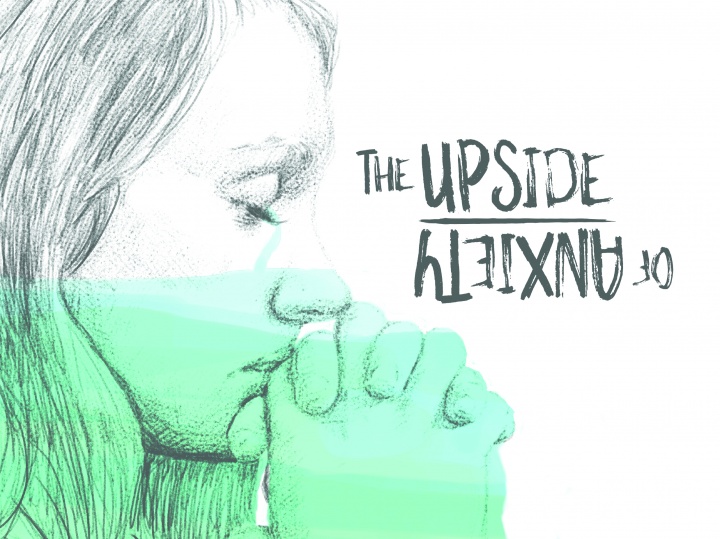The Upside of Anxiety

Sitting in a doctor’s office a few days after my 25th birthday, I waited to find out what was wrong with my feet after my first gout attack. Instead, I found out that I was being diagnosed with major depression as well as Generalized Anxiety Disorder, instantly tripling in one fell swoop the number of mental illnesses I was struggling with. (I had been diagnosed with PTSD as a small child more than two decades before.) Long before this, and long afterward, I knew anxiety well.
Perhaps you are also familiar with anxiety. Perhaps you know the crippling stress over tests, or stress out about difficulties with other people to the extent that you become physically ill. Perhaps you cannot sleep at night because your mind is racing with a million different thoughts that you struggle to get off your chest so that you can sleep in peace. If anxiety is a frequent part of your life, know that you are far from alone. Statistics from the Center for Disease Control estimate that throughout a lifetime 15 percent of Americans will have enough anxiety to be classifiable as having an anxiety disorder, and that during a year around 10 percent of Americans struggle with such a disorder (cdc.gov/mentalhealth/basics/burden.htm). Even if you struggle with anxiety that affects the way you live on a regular basis, you are in good company.
When my anxiety reaches the level where others are aware of it, I struggle with a sense of guilt or defensiveness, especially when others quote scriptures like Matthew 6:25: “Do not worry about your life, what you will eat or drink; or about your body, what you will wear. Is not life more than food, and the body more than clothes?” When anxiety has been such a presence in my life, whether that anxiety has been focused on unpleasant reminders about my past, discomfort about my present, or concern and worry about my future, it helps to think how an upside of that anxiety can be seen. What good can such a struggle bring?
In many cases, anxiety has given me a chance to wrestle with what is in my heart and mind, and though I have not always relished such wrestling, like Jacob before crossing over the Jordan River into the promised land, I have found strength in fierce tenacity, holding on to God through the dark nights of my soul. When I have worry and anxiety, I have been given a glimpse into the parts of my life where my faith has needed to be strengthened, where I have needed to work on having more trust in God, and what I need to understand about my own life and my own background so that I may better understand the road that God has called me to take.
After I committed to following God at baptism, I have often found that my own months and years of wrestling with anxiety have helped to build in me a greater compassion for the anxiety that others suffer. I have been more patient as a friend and better at listening to and encouraging those who are walking a road similar to mine, because of having gone through the deep struggle against my own anxieties. I have learned what activities lead me to be anxious and have changed my behavior accordingly, like making changes to my diet to avoid coffee. I hope that I have not only become a more mature person for having overcome anxiety, but that I have also become more compassionate and gentle with others.
I have found strength in fierce tenacity, holding on to God through the dark nights of my soul.
My own struggles have enabled me to give hope to those who are struggling, so they can see how their own trials and suffering could have a good result, just as Christ’s example gives me hope. As Hebrews 4:15-16 tells us: “For we do not have a High Priest who cannot sympathize with our weaknesses, but was in all points tempted as we are, yet without sin. Let us therefore come boldly to the throne of grace, that we may obtain mercy and find grace to help in time of need.” And as it is written in Philippians 4:13-14: “I can do all things through Christ who strengthens me. Nevertheless you have done well that you shared in my distress.”

